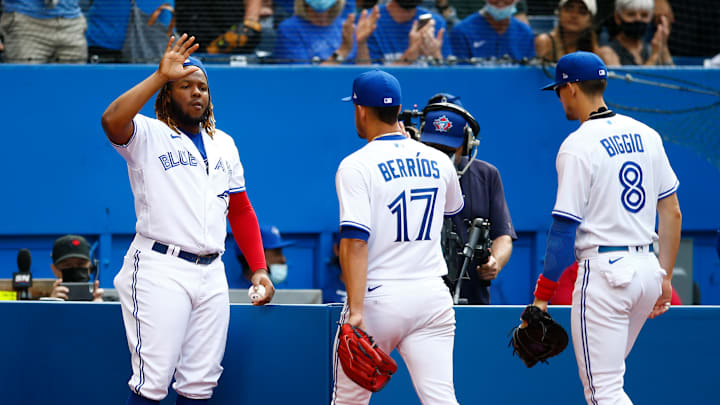How the Jays' current payroll projections could effect them this offseason
The 2024 competitive balance tax threshold will rise from $233 million this year to $237 million. With the window for young homegrown stars Bichette and Guerrero potentially closing as they both reach free agency following the 2025 season, it’s a good bet that the payroll will remain above $200 million and bump up closer to that $237 million.
Adding $75 million in potential arbitration awards, pre-arbitration salaries for youngsters like Davis Schneider, and long term contract extensions to the $125 million in projected luxury tax payroll based on guaranteed contacts and one club option for 2024 would get Toronto near $200 million.
If they decide not to trigger the luxury tax for a second consecutive year to reset the potential penalties, that would leave them with ~$37 million in annual payroll room to sign free agents to potentially replace Ryu, Chapman, Belt, Kiermaier, Merrifield and Hicks. They may also look at cheaper internal solutions to replace at least some of those players above, including Spencer Horwitz, Orelvis Martinez, Addison Barger and Alan Roden.
Looking at the list of potential 2024 free agents, there are plenty of starting pitching options in the $15-25 million AAV range to replace Ryu if he signs elsewhere, like Aaron Nola, Sonny Gray, Blake Snell and potentially Eduardo Rodriguez, who can opt-out of his contract; while Shohei Ohtani (who is unlikely to pitch in 2024 after suffering a UCL tear), Cody Bellinger and Teoscar Hernández highlight the list of potentially available position players. Ohtani may be out of reach, but Toronto should certainly be in the mix for starting pitching and at least one bat.
